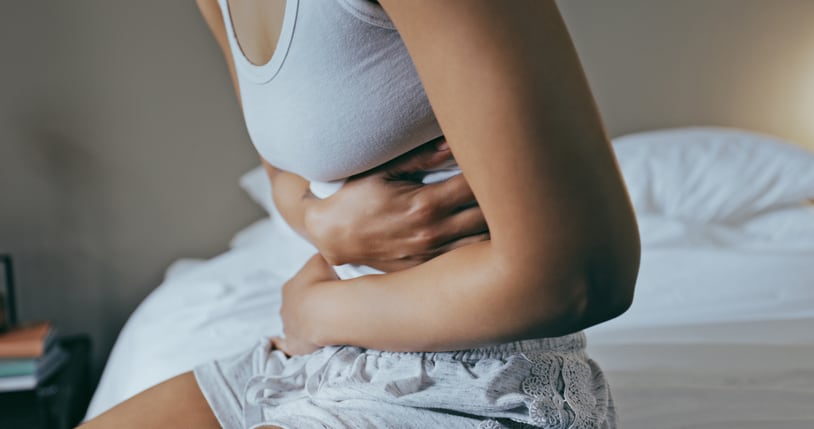Writing in the journal Nutrients, researchers from the University of Pavia and other institutions in Italy compared the effects of both extracts coupled with a low-FODMAP diet in two IBS groups—one with previous COVID-19 infection and the second without.
The study reported that the extracts only reduced gut dysbiosis in IBS patients without previous COVID-19 infection. In the post-COVID-19 group, dysbiosis persisted, underscoring the need for further research into the pathophysiology of this new phenomenon.
Post-COVID-19 irritable bowel syndrome
Research suggests the existence of post-COVID-19 irritable bowel syndrome as a new phenomenon, indicating that nearly 12% of people who have had COVID-19 may develop new-onset IBS symptoms.
SARS-CoV-2 can be found in the gastrointestinal tract (GIT) and may enter the cells there via angiotensin-converting enzyme 2 (ACE2) receptor, damaging the GIT tissues.
Previous research also shows that nearly 18% of patients with severe COVID-19 experienced gastrointestinal symptoms.
Curcuma and Boswellia may modulate the gut
Researchers on the current study previously demonstrated that Curcuma (the active ingredients in turmeric) and Boswellia (also known as frankincense) extracts, as sunflower-lecithin-based formulations, significantly reduced dysbiosis and abdominal bloating in IBS patients when combined with a low-FODMAP diet.
They noted that the findings may be attributed to the anti-inflammatory and gut antimicrobial modulation properties of the extracts and their polyphenol content.
Phytosome technology delivers botanical ingredients via phospholipids complexes, improving the solubility and effectiveness of the active compounds.
“In our study, the phytosome technology has been used in both Curcuma and Boswellia extracts, and this could have promoted the favorable clinical outcome due to a potential benefit of the highly bioavailable extracts,” the researchers noted.
Study details
The study compared two groups of participants—16 adults with long COVID and IBS-like symptoms (the PCIBS group) and 28 adults with a diagnosis of IBS without previous COVID-19 infection (the control group).
Both groups supplemented for 30 days with sunflower-lecithin-based formulations of extracts of Curcuma longa (500 mg) and Boswellia serrata (150 mg) and received dietary guidance for a low-FODMAP diet.
The researchers used questionnaires and urine and blood samples to evaluate participants’ symptoms and the effectiveness of the intervention.
Results showed a statistically significant reduction in bloating and abdominal pain. The global assessment of efficacy (GAE) revealed similar satisfactory rates in both groups.
However, the researchers noted that urinary indican as a marker for dysbiosis “was observed only in subjects with IBS without COVID-19 infection” and that this finding reflects previous data suggesting that gut dysbiosis may linger beyond a year after clearing the SARS-CoV-2 infection.
“While both groups showed symptomatic improvement, the lack of urinary indican reduction in people with PCIBS suggests divergent dysbiosis mechanisms compared to those with traditional IBS, implying that while anti-inflammatory effects may address shared symptoms, PCIBS may require etiology-specific strategies for dysbiosis” they added.
While the study highlighted the potential of herbal extracts, it also underscored the need for further research to investigate PCIBS.
Source: Nutrients 2025, 17(4), 723. doi: 10.3390/nu17040723. “Positive Effect of Lecithin-Based Delivery Form of Curcuma and Boswellia Extracts on Irritable Bowel Syndrome After COVID-19 Infection”. Authors: A. Giacosa et al.

